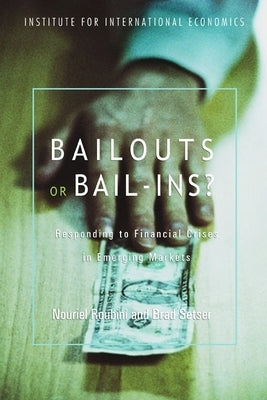Description
Roughly once a year, the managing director of the International Monetary Fund, the US treasury secretary and in some cases the finance ministers of other G-7 countries will get a call from the finance minister of a large emerging market economy. The emerging market finance minister will indicate that the country is rapidly running out of foreign reserves, that it has lost access to international capital markets and, perhaps, that is has lost the confidence of its own citizens. Without a rescue loan, it will be forced to devalue its currency and default either on its government debt or on loans to the country's banks that the government has guaranteed.
This book looks at these situations and the options available to alleviate the problem. It argues for a policy that recognizes that every crisis is different and that different cases need to be handled within a framework that provides consistency and predictability to borrowing countries as well as those who invest in their debt.Author: Nouriel Roubini, Brad Setser
Publisher: Peterson Institute for International Economic
Published: 04/30/2004
Pages: 348
Binding Type: Paperback
Weight: 1.35lbs
Size: 9.06h x 6.02w x 0.83d
ISBN13: 9780881323719
ISBN10: 0881323713
BISAC Categories:
- Business & Economics | Economics | Microeconomics
- Business & Economics | Money & Monetary Policy
About the Author
Nouriel Roubini is an American economist. He teaches at New York University's Stern School of Business and is the chairman of Roubini Global Economics, an economic consultancy firm.

